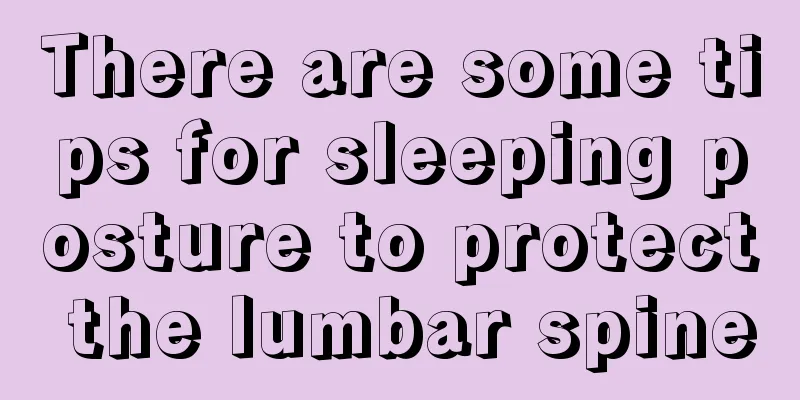Loose finger joints

|
Among middle-aged and elderly people, loose finger joints often occur. So what causes loose finger joints? Generally speaking, the most common cause of loose finger joints is osteoporosis. Since middle-aged and elderly people generally suffer from calcium deficiency, they are likely to suffer from osteoporosis. Therefore, the following article will focus on providing you with relevant knowledge about osteoporosis. symptom 1. Pain The most common symptom of primary osteoporosis is low back pain, which accounts for 70%-80% of pain patients. The pain spreads to both sides along the spine. It is relieved when lying on your back or sitting, and is aggravated when standing upright or stretching back or standing or sitting for a long time. The pain is mild during the day and worsens at night and when waking up in the early morning. It is aggravated by bending over, muscle movement, coughing, or straining during bowel movements. Generally, bone pain occurs when bone loss exceeds 12%. In the elderly with osteoporosis, the vertebral trabeculae atrophy and decrease in number, the vertebral bodies are compressed and deformed, the spine is flexed, and the lumbar spine muscles contract doubly to correct the flexion, causing muscle fatigue and even spasm, resulting in pain. Recent thoracic and lumbar compression fractures can also cause acute pain, with severe tenderness and percussion pain in the corresponding spinous processes. Generally, the pain will gradually subside after 2-3 weeks, and some patients may develop chronic low back pain. If the corresponding spinal nerves are compressed, radiating pain in the limbs, sensory and motor disorders in both lower limbs, intercostal neuralgia, and pain behind the sternum similar to angina pectoris may occur, and upper abdominal pain similar to acute abdomen may also occur. If the spinal cord and cauda equina are compressed, it will also affect the bladder and rectal functions. 2. Shortened stature and hunchback It often occurs after pain. The front part of the vertebral body is mostly composed of cancellous bone, and this part is the pillar of the body and bears a heavy weight, especially the 11th and 12th thoracic vertebrae and the 3rd lumbar vertebra, which have a greater load and are easily compressed and deformed, causing the spine to lean forward and the back curvature to increase, forming a hunchback. With age, osteoporosis worsens and the hunchback curvature increases, resulting in significant knee joint contracture. Each person has 24 vertebrae. In normal people, each vertebra is about 2 cm high. When the elderly suffer from osteoporosis, the vertebrae are compressed, each vertebra is shortened by about 2 mm, and the average height is shortened by 3-6 cm. 3. Fracture This is the most common and serious complication of degenerative osteoporosis. 4. Decreased respiratory function Compression fractures of the thoracic and lumbar vertebrae, kyphosis, and chest deformity can significantly reduce vital capacity and maximum ventilation volume. Patients often experience symptoms such as chest tightness, shortness of breath, and difficulty breathing. |
<<: Quick solution to belching
>>: Finger joint injury while playing basketball
Recommend
What does it mean to have an IUD
"Huan" is a colloquial term for an intr...
What are the more obvious symptoms of wind-heat cold?
Cold is a common disease in life, and many friend...
Why does my butt hurt?
Buttock and heel pain is a common phenomenon in d...
What to do if lung cancer recurs
Treatment methods for lung cancer recurrence Many...
Which is better, chemotherapy or targeted drugs for lung cancer
Chemotherapy and targeted drugs are effective tre...
Metronidazole tablets treat periodontitis, pharmacology is the most important
Metronidazole is indeed effective in treating per...
What is a good drink after exercise
You will feel very thirsty after exercise, so of ...
Is teratoma dangerous?
The degree of harm caused by teratoma varies depe...
How to get rid of the smell of sneakers?
Many young people like to wear sneakers, especial...
Causes and pathogenesis of gastric cancer
Regarding the etiology and pathogenesis of gastri...
What to do in late stage of lymphoma?
What to do with advanced lymphoma? If the patient...
Preparation before chemotherapy for prostate cancer
Chemotherapy is one of the treatment methods that...
What are the symptoms of bone pain in prostate cancer? What should I do if the prostate bone metastases?
Prostate cancer threatens many patients. Patients...
Blood test for ovarian cancer
Generally speaking, the most commonly used clinic...
How to deal with salted kelp
Kelp is a common seafood, and many people like to...









